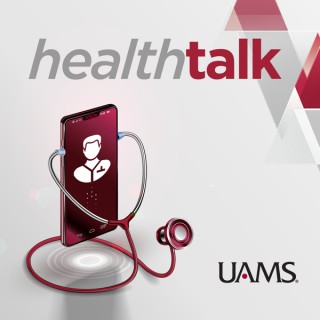Podcasts about rectal surgeon
- 9PODCASTS
- 9EPISODES
- 36mAVG DURATION
- ?INFREQUENT EPISODES
- Dec 2, 2023LATEST
POPULARITY
Latest podcast episodes about rectal surgeon
The Growing incidence of Colo-rectal Cancer in Cabo Verde and the management challenges: a perspective of a young solo-rectal surgeon, Dr. Luis Bernardo Moreira
In this episode hear a presentation of a young Colo-rectal surgeon about the growing incidence of colorectal cancer in Cabo Verde, the cultural and socio-economic barriers to screening and the challenges of treating colon cancer in Cabo Verde. presentation by Dr. Luis Bernardo Moreira and a great discussion with CVAMS members
The Value and Role of a CWOCN from a Colon & Rectal surgeon point of view
Kristen Benavides BSN, RN, CWOCN interviewing S. Joga Ivatury, MD, MHA, Chief of Colon and Rectal Surgery at Dell Medical School and currently practices at Dell Seton Medical Center at the University of Texas in Austin. They will discuss the important role a Certified Wound Ostomy Continence nurse has in both the inpatient and outpatient setting providing essential support and education to patients.
In honor of National Colorectal Cancer Awareness Month, we had the honor of speaking with U.S. Army officer, Board Certified, Colon and Rectal Surgeon Dr. Avery Walker. Avery gives us an insight as to the life of a U.S. Army officer, Colon and Rectal Surgeon and father. You can follow Dr. Walker on twitter @Averywalker21 and check out some of his surgeries on his You tube page as Avery Walker.
August 17, 2020 - Dr Marc Grodsky, Prevea Colon and Rectal Surgeon
August 17, 2020 - Dr Marc Grodsky, Prevea Colon and Rectal Surgeon
Colonoscopies can help discover polyps before they could become cancerous. Dr. Jason Mizell, UAMS Colon and Rectal Surgeon, discusses polyps and colonoscopies.
Dr. Erica Sneider is a community Colon and Rectal Surgeon who joins me today to discuss why she loves her specialty and traits that make a great surgeon!
[caption id="attachment_1565" align="alignleft" width="300"] A Routine Colonoscopy Saved His Life, With John Cavanaugh[/caption] in May of 2014 John Cavanaugh was diagnosed with colon cancer after a routine colonoscopy. John's story was profiled in this Colon Cancer Coalition's Faces of Blue article. On my 50th birthday, I promised my wife I would make an appointment for a full physical. On May 5, 2014, my primary physician, Dr. Troy Fate, MD scheduled a routine colonoscopy. I had two polyps removed and one turned out to be cancerous with positive margins. After a consultation with Dr. Scott Brill, a Colon and Rectal Surgeon at Ohio Health in Columbus, we elected for surgery on June 6th (Lilly’s birthday). Dr. Brill found no evidence of cancer in the section removed, but one lymph node out of 13 tested positive for cancer cells. One of the risks of my operation was the possibility of a leak. Unfortunately, that occurred and I fell ill with sepsis which required a second emergency surgery. Luckily Dr. Brill is an Army Veteran with trauma experience so he was able to save my life. I needed two additional procedures to install drains for fluid build up near my lungs. My wife never left my side for a month and slept next to me on a recliner (Much like the scene where Robin Williams describes the meaning of love to Matt Damon on the park bench in Good Will Hunting). After a several rounds of antibiotics, I recovered enough to be discharged from the hospital with a temporary ileostomy. After three weeks of intensive physical and occupational therapy at home, I was able to participate in our daughter’s wedding ceremony. Then I endured several months of chemotherapy that made me look like the main character from “Unbroken”. In December, right before my birthday and the Christmas holidays, Dr. Brill reversed the diversion and I spent much of 2015 recuperating. On May 5, 2015, Dr. Brill performed a colonoscopy which resulted in a normal finding. Later in December, I had a CT scan and received a clean bill of health. I continued to be followed closely by my oncologist with regular blood screening, but am now back to work full-time. Want your holiday greeting shared on an upcoming podcast episode? Call (813) 434-3215 and leave a short holiday greeting to a friend or loved one. Links Mention In This Episode: The Colon Cancer Coalition: https://coloncancercoalition.org Cancer + Careers: https://www.cancerandcareers.org/en WE Have Cancer Links Subscribe to the show: Apple Podcast - https://itunes.apple.com/us/podcast/the-colon-cancer-podcast/id970806995?mt=2 Google Podcasts - https://www.google.com/podcasts?feed=aHR0cHM6Ly93ZWhhdmVjYW5jZXJzaG93LmxpYnN5bi5jb20vcnNz Spotify - https://open.spotify.com/show/798gZB3qGwUnpwopVV2Bxh?si=PIzyypykRauLKckji9LXsQ Stitcher - https://www.stitcher.com/s?fid=61770&refid=stpr Follow WE Have Cancer on Social Media Like our Facebook page - https://www.facebook.com/wehavecancershow/ Join our private Facebook group - https://www.facebook.com/groups/wehavecancershow/ Follow us on Twitter - https://twitter.com/wehavecancerpod Follow us on Instagram - https://instagram.com/wehavecancerpod Know someone touched by cancer who has an inspiring story? Nominate a guest to appear on the podcast - https://wehavecancershow.com/guest
400 physicians commit suicide in the United States every year. Why are more and more people in the medical field experiencing burnout... and even contemplating suicide? More importantly, what can be done about it? These are questions Dr. David Rothenberger has been trying to answer. Dr. Rothenberger's career as a Colon and Rectal Surgeon at the University of Minnesota has spanned over three decades. He led the department as chair for four years. In 2017, he was appointed as the Medical School's special adviser for physician wellbeing. We discuss growing efforts to raise awareness about and improve the mental wellbeing of healthcare professionals.
Dr. Shekar Narayanan, Colon and Rectal Surgeon
Dr. Narayanan speaks on minimally invasive techniques used at Community Health Network.












